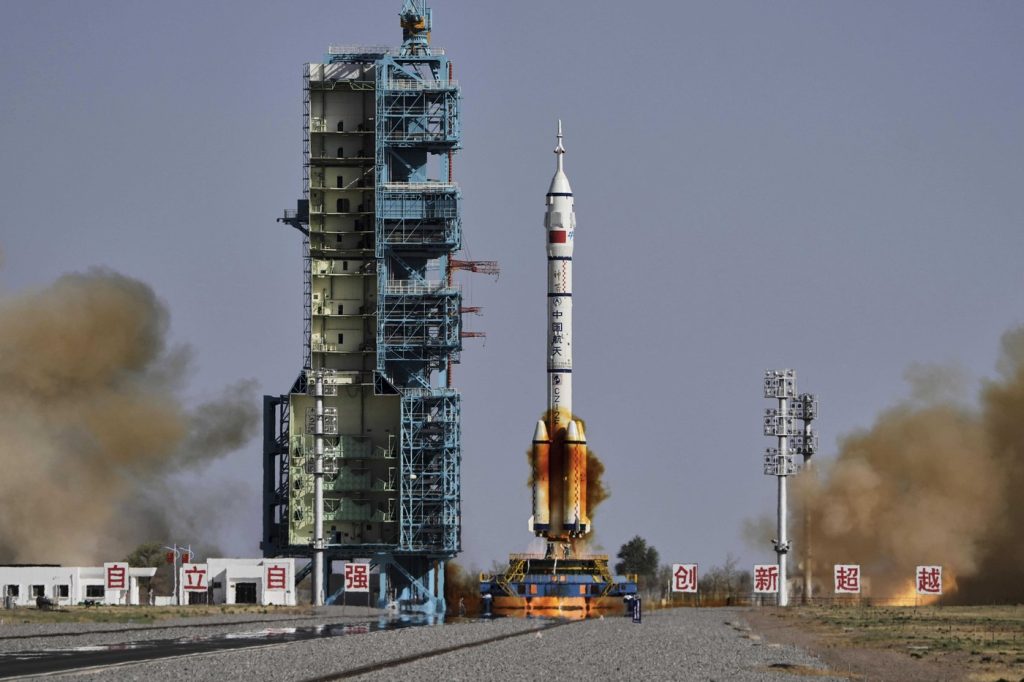During this year's Victory Day parade in Moscow, hackers supporting the Kremlin managed to hijack a satellite providing television service to Ukraine. Instead of the regular programming, Ukrainian viewers were fed footage from the parade, showcasing tanks, soldiers, and weaponry. This act was intended to intimidate Ukraine, highlighting how modern warfare extends beyond traditional domains to encompass cyberspace and even outer space.
Disabling a satellite can result in significant disruptions without any physical attack, achievable by targeting its security software or interfering with its communication capabilities. Tom Pace, CEO of NetRise, a cybersecurity firm, emphasized the chaos that could ensue if critical satellite communication, such as GPS, were compromised. He explained that the loss of GPS would create widespread confusion, severely impacting civilian and military operations.
Currently, over 12,000 satellites orbit Earth, playing crucial roles in various sectors including communications, military strategy, navigation, intelligence gathering, and economic supply chains. Their importance makes these satellites prime targets for adversaries seeking to weaken an opponent's military readiness or economic stability. Hackers tend to exploit weaknesses in the software or hardware that manage satellite communications, even if the satellites themselves are secure. Outdated software can leave them vulnerable to attacks.
A significant incident occurred as Russian forces invaded Ukraine in 2022 when Viasat, a U.S.-based satellite company pivotal for Ukraine's government and military, was hacked. This attack, attributed to Moscow, employed malware that disabled tens of thousands of modems, causing outages across large parts of Europe. Furthermore, National security officials revealed that Russia is developing a space-based nuclear weapon aimed at disabling nearly all satellites in low-Earth orbit simultaneously. This weapon would theoretically carry out a physical attack that would cascade to cause further destruction while using a nuclear component to damage electronic systems.
U.S. Representative Mike Turner raised alarms about the potential consequences of such a weapon, noting that its deployment could violate international treaties against weapons of mass destruction in space. He pointed out that it could render low-Earth orbit unusable for up to a year, leaving countries vulnerable to economic crisis and military attacks.
As nations pursue claims to extraterrestrial resources, competition is intensifying, particularly regarding potential mining operations on the moon, which is rich in helium-3. Sean Duffy, acting NASA Administrator, highlighted the urgency for the U.S. to establish a presence on the moon before rivals like China or Russia can exert their influence. The need for energy and strategic locations on lunar territory is becoming increasingly apparent as powerful nations race to exploit these new frontiers.
China and Russia have indicated plans to develop nuclear capabilities on the moon, while the U.S. also moves forward with missions to explore both the moon and Mars. The race for these resources is escalating, further complicated by advanced technologies like artificial intelligence, which will require substantial energy resources.
While China has expressed opposition to any arms race beyond Earth, their government accuses the U.S. of militarizing space. Liu Pengyu, a spokesperson for the Chinese Embassy in Washington, criticized U.S. actions that appear aimed at creating military alliances and establishing dominance in outer space.
The U.S. is actively pursuing its interests in space through the establishment of the Space Force in 2019, which aims to defend American satellites and ensure national security in this domain. Despite being smaller than traditional military branches, the Space Force is expanding and is focused on safeguarding U.S. interests against adversaries. Access to space is deemed a vital national security interest.
The paradigm of American dominance in space is challenged by the emerging threats from Russia and China, necessitating a robust response from U.S. officials. Representative Turner emphasized the importance of vigilance to prevent these potential threats from materializing, urging the need for strategic planning in an era where space is recognized as a critical arena for national security.











